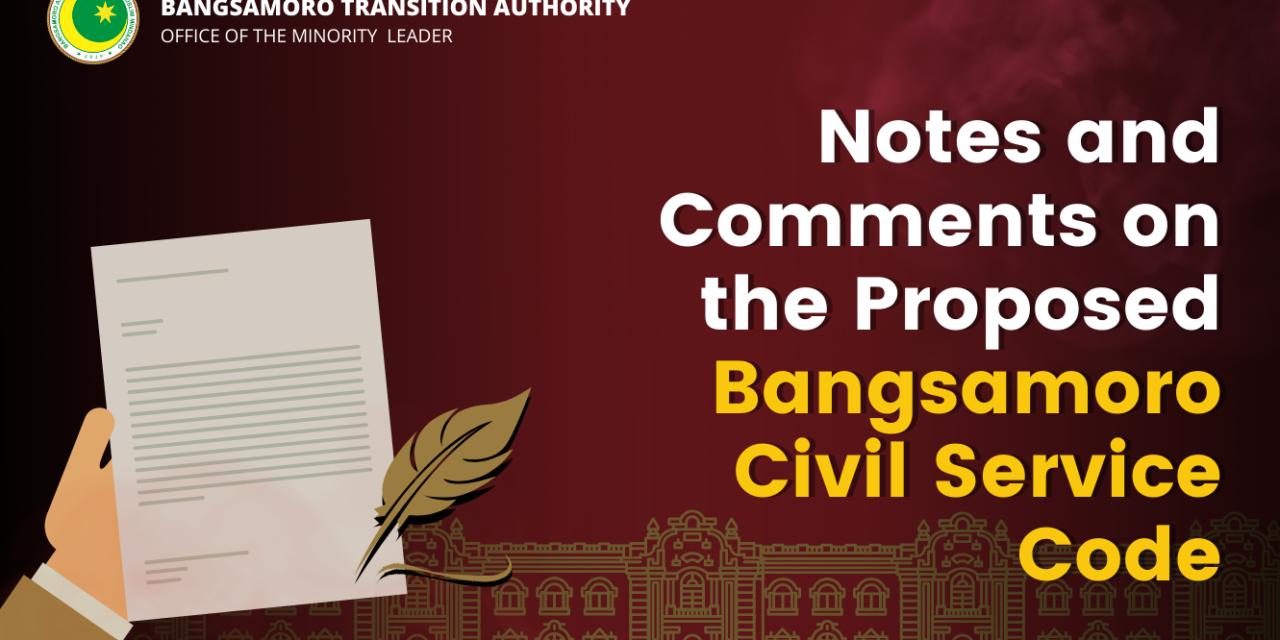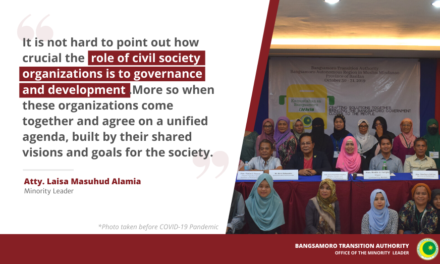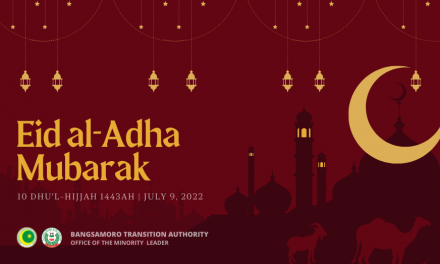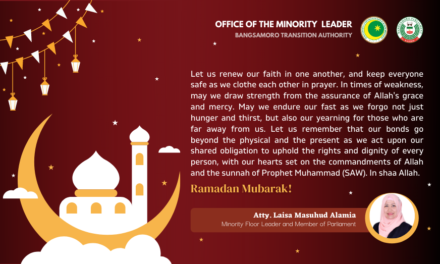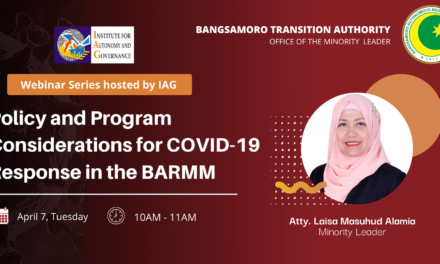An effective and efficient bureaucracy is the backbone of every government, especially those working towards reform and development. The enactment of the Bangsamoro Civil Service Code is urgent and necessary because only then can the regional government move forward in structuring a civil service system that sets the standard for the regional government’s bureaucracy.
Fair and formal selection rules and processes must be outlined in the code, making sure that the recruitment process is based on merit and fitness for the position. However, it must also provide opportunities for learning and participation to those who seek to enter the civil service, in the spirit of inclusion and diversity. Thus, reforms towards a comprehensive and inclusive civil service must include transitory provisions regarding civil service employees who have been affected by the reorganization during the transition period, and provide for a specialized capacity development program for mujahideen who wish to join the ranks of the regional government.
There is also a need to invest in career executives in the civil service. The career executive service (CES) is the third level or managerial class in career positions, the highest level of career civil service according to government classification. They are trained to keep up with the complex demands of public service, and are instrumental in facilitating government processes and improving the delivery of services to the people.
A civil service that is driven by meritocracy and opportunities for growth is associated not only with socioeconomic progress, but also with increased motivation among civil servants and reduction of corrupt practices in government. The Office of the Minority Leader has outlined key recommendations in its notes on the proposed Bangsamoro Civil Code, linked below:
Proposed Bangsamoro Civil Service Code:

